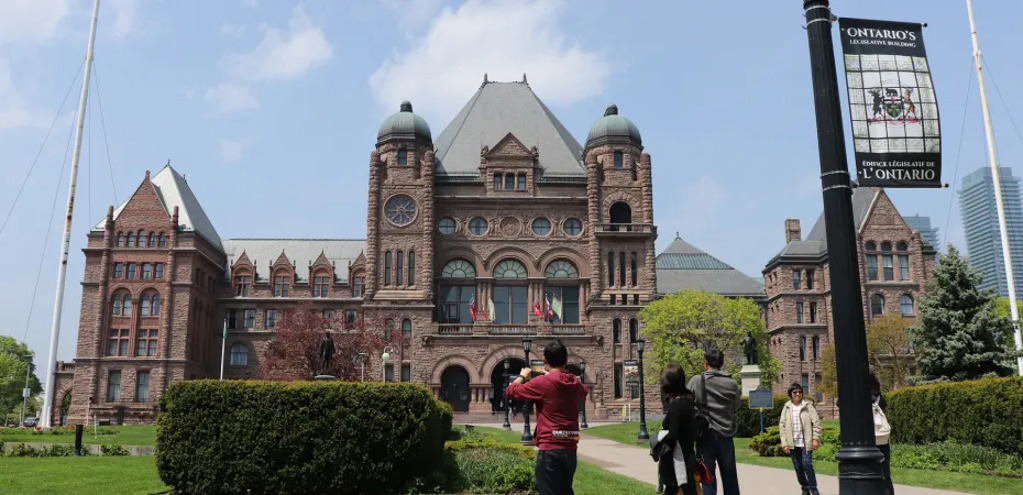Ontario’s Premier is a divisive figure, to say the least.
Most people you talk to probably don’t look upon the Ford cabinet favourably at the moment with their recent anti-democratic threats on workers’ rights. This begs the question: How did we end up with a Ford government?
To answer this question we have to historicize the rise of Ford. The two Premiers that served before Ford were the liberal party’s Kathleen Wynne and Dalton McGuinty. Both these former premiers made important moves in things like protecting Canada’s wildlife as seen in McGuinty’s establishing the Green Belt, and Wynne’s passing of The Great Lakes Protection Act, as well as McGuinty’s canceling major tax cuts, and Wynne’s updating the provincial sex education curriculum. All of which Ford has attacked.
The issue is that when the pandemic hit, workers were already feeling underappreciated for low-paid work alongside struggles with a rising cost of living and now the impacts of a global inflation. The classic playbook for conservatives is to capture this frustration through populist rhetoric that attacks an out-of-touch, ivory tower bound establishment. This is the same strategy of Pierre Poilivre at the federal level, who claims to be in support of workers and regular Canadian families yet he’ll vote against the NDP’s Dental Care program which eased the financial burden for uninsured kids.
The reader will recall that one of the things Ford ran on in 2018 was the “buck a beer” campaign promise, which beer retailers have realized was completely unfeasible. This notorious campaign idea came off like a parody of what populist rhetoric is, yet it somehow worked.
Or did it?
This leads to a second consideration when it comes to how Ford rose to power: depoliticization.
We’ve all become acquainted with the cliché of the broke, nihilistic millennial. Like most clichés, there’s a little bit of truth in this idea. Millennials entered the job market during the 2008 financial crisis and most of Canada’s welfare system had been stripped away with Paul Martin. This no doubt led to a great deal of depoliticization as life just became a matter of survival in a hostile job market for millennials; there was no time to think about the polity, just protecting one’s own tail.
In the last provincial election which Ford won with 43 per cent of the votes, only 33 per cent of the electorate showed up. While polling in Ontario doesn’t categorize by age group, it’s fair to say that it was mostly older folks who came out to vote. Canada’s senior population is fairly large and only growing and they have both money and time, preserving the former for those already financially well off being one of Ford’s aims.
Ford coming into power begins to make sense with this history in mind; he’s a guy who identifies the issues created by neoliberal policies — social insecurity, unemployment, etc. — and points the blame onto the “reckless” spending habits of Ottawa while marketing himself as a regular Canadian you could barbecue in the backyard with. His rhetoric of a sober economical analysis of things and his lack of political ambition for anything like justice works well for not bugging a largely depoliticized younger population and piquing the self-interest of an older population, both of which have mostly come to see capitalism as natural.
However, if trends in Gen Z electoral participation as seen down south with the “red wave” upset in the U.S. midterms due in large part to that age cohort’s participation, are an indication of anything—it’s that the up-and-coming generations are making themselves heard in ways that should frighten conservatives like Doug Ford.


